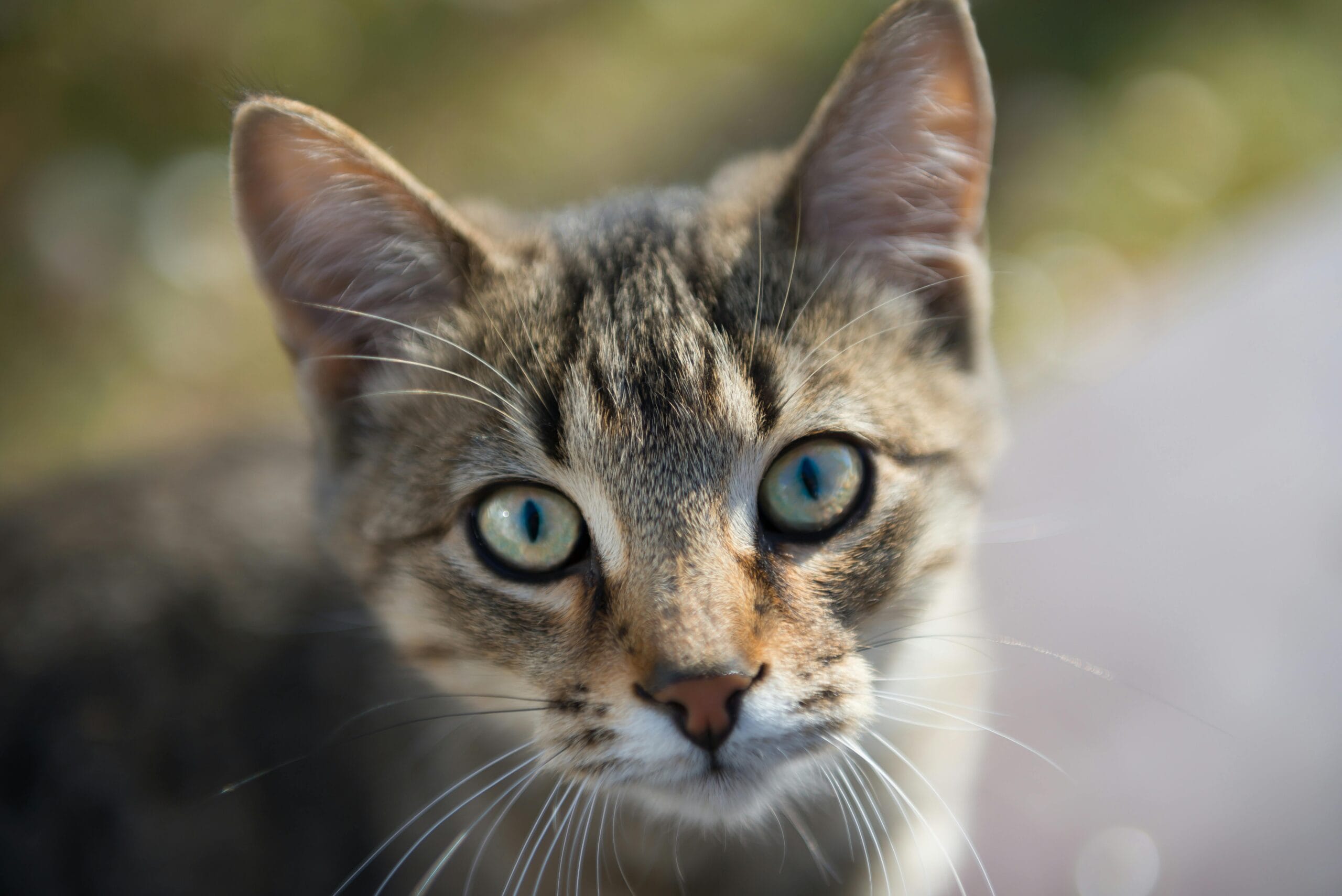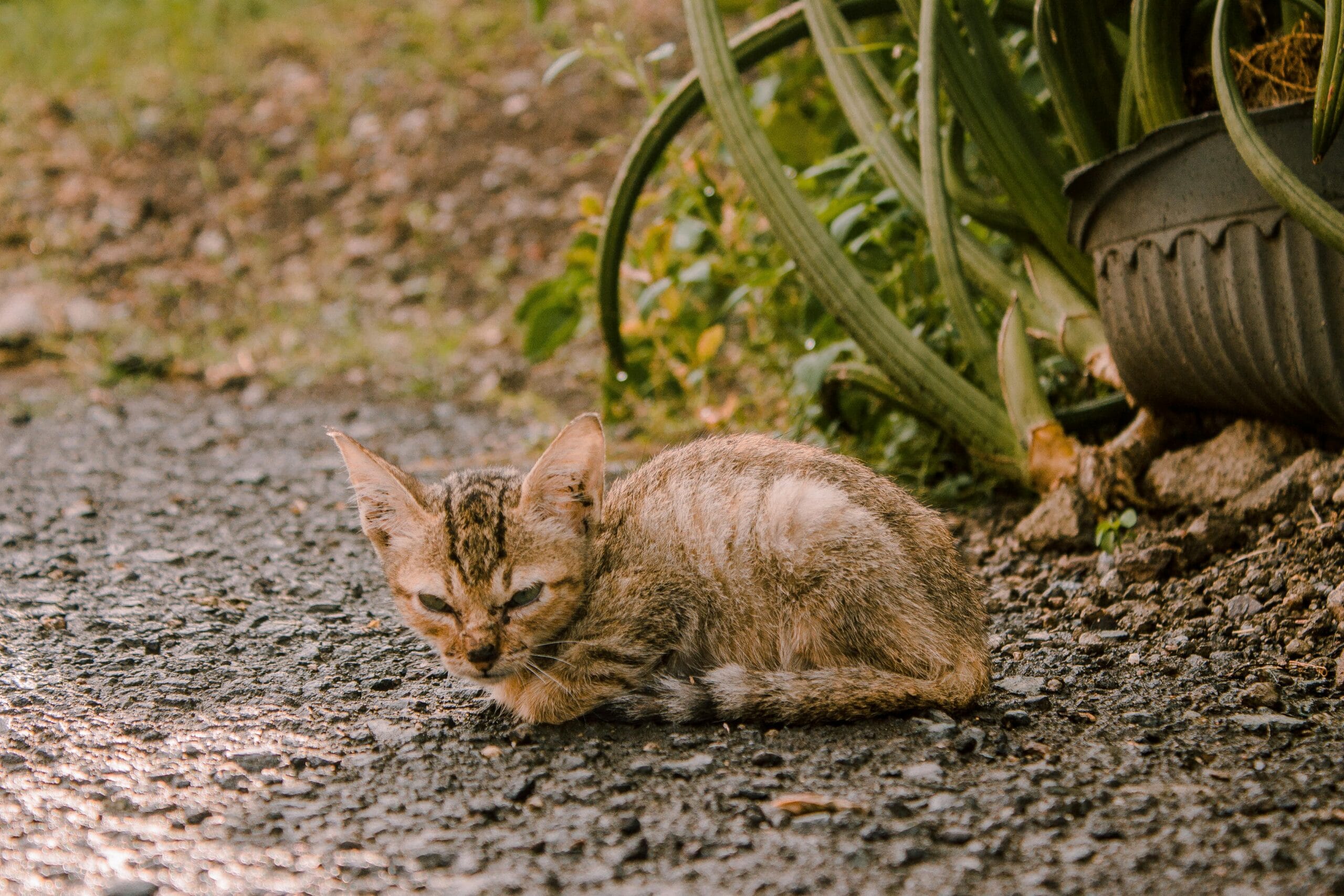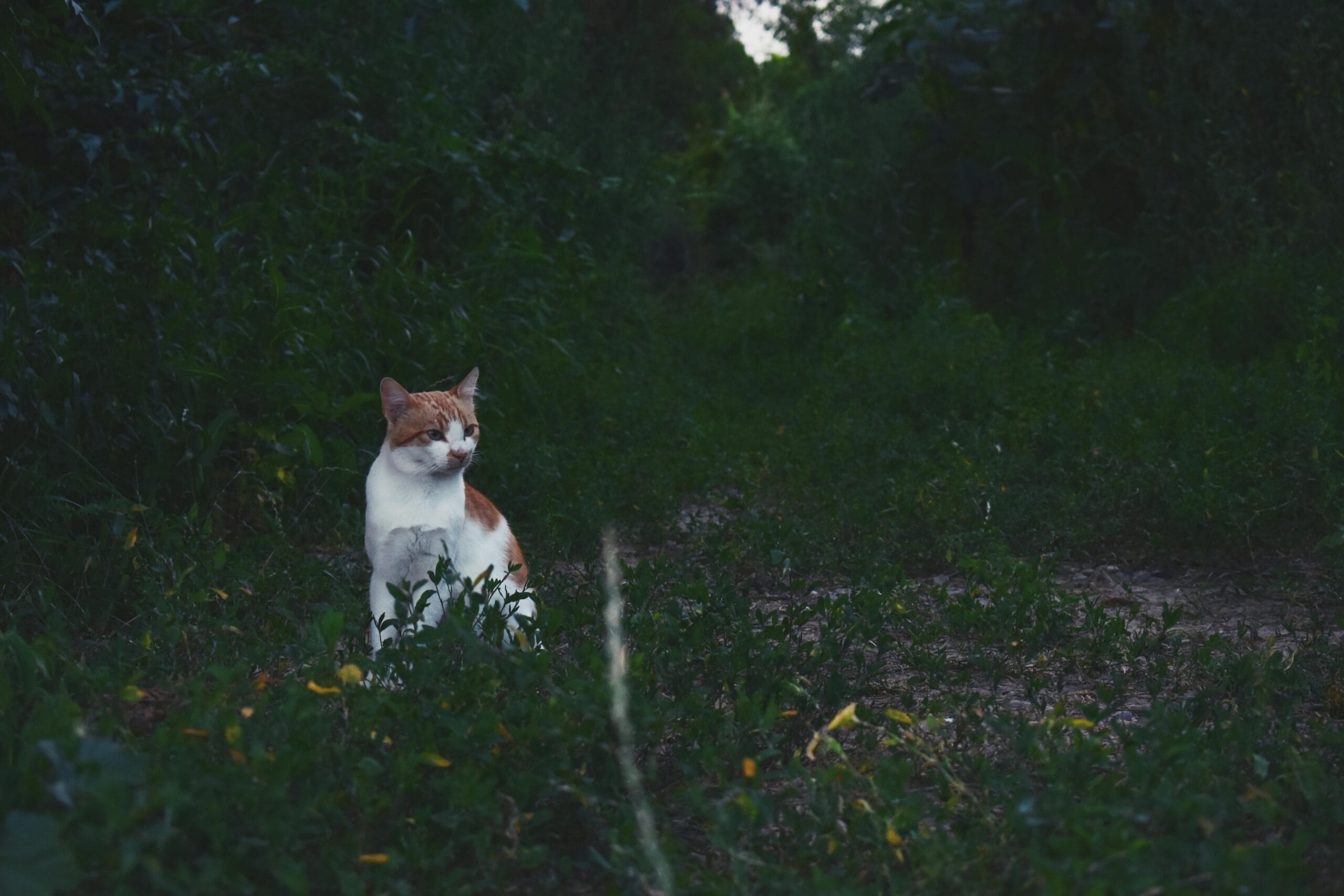Can I feed my cat rotisserie chicken breast? Is rotisserie chicken safe for cats? Find out if rotisserie chicken for cats is a healthy treat or a harmful habit! Learn the risks & benefits now.
Can I Feed My Cat Rotisserie Chicken Breast? A Comprehensive Guide
The question, “Can I feed my cat rotisserie chicken breast?” is a common one among cat owners. While chicken is a good source of protein for cats, rotisserie chicken often contains added ingredients that can be harmful. This detailed guide explores the safety and nutritional aspects of feeding your feline friend rotisserie chicken, helping you make informed decisions about their diet. We’ll cover everything you need to know about rotisserie chicken for cats and whether is rotisserie chicken safe for cats.
Understanding Cat Nutritional Needs
Before diving into the specifics of rotisserie chicken, let’s establish a baseline understanding of what constitutes a healthy cat diet. Cats are obligate carnivores, meaning their bodies are designed to thrive on meat-based protein. A balanced diet should provide sufficient protein, essential fatty acids, vitamins, and minerals. While a small amount of plant-based matter can be tolerated, a cat’s primary nutritional source should always be animal protein. Many cat owners find that introducing variety, while maintaining a balanced diet is key to a healthy, happy cat.
Thinking about adding other foods to your cat’s diet? We’ve explored the safety of other foods like sardines (can cats eat sardines), cherries (can cats have cherries), grapes (can cats eat grapes), beef tendon (can kittens eat beef tendon), and even lettuce (can cats have lettuce) in other articles. Remember, always consult your veterinarian before making significant dietary changes.
The Risks of Rotisserie Chicken for Cats
Is rotisserie chicken safe for cats? The short answer is: it depends. While plain, cooked chicken breast is a generally acceptable protein source, rotisserie chicken often presents several risks:
High Sodium Content
Rotisserie chickens are frequently marinated in high-sodium solutions to enhance flavor. Excessive sodium intake can be detrimental to cats, potentially leading to sodium ion poisoning, which can cause vomiting, diarrhea, increased thirst, and even seizures. For cats with pre-existing kidney issues, the high sodium content is especially dangerous. According to the PetMD website, even moderate amounts of extra salt can have serious consequences.
Added Spices and Seasonings
Many rotisserie chickens contain various spices, herbs, and seasonings. These additives can be irritating to a cat’s digestive system, causing upset stomach, vomiting, or diarrhea. Some spices are even toxic to cats. Always check the ingredient list carefully before considering giving any to your cat.
Bone Fragments
Despite being cooked, bone fragments can remain in rotisserie chicken. These sharp fragments can cause injury to your cat’s mouth, throat, or digestive tract. Even small fragments can lead to internal damage and require veterinary intervention.
Potential for Bacterial Contamination
Improperly stored or cooked rotisserie chicken can harbor harmful bacteria, such as Salmonella or E. coli. These bacteria can cause severe illness in cats, leading to vomiting, diarrhea, fever, and potentially even death. Always ensure that any chicken you feed your cat is thoroughly cooked and stored correctly.
Can I Feed My Cat Rotisserie Chicken Breast? A Cautious Approach
Given the potential risks associated with feeding cats rotisserie chicken, it’s generally recommended to avoid it. If you’re considering giving your cat chicken, opt for plain, cooked chicken breast, prepared specifically for your pet. Avoid any added seasonings, spices, or sauces. This will minimize risks and ensure your cat’s health and safety. The American Society for the Prevention of Cruelty to Animals (ASPCA) has a wealth of information on foods that are safe and unsafe for pets.
Alternatives to Rotisserie Chicken for Cats
There are many safe and nutritious alternatives to rotisserie chicken for cats. High-quality commercial cat food provides a balanced diet tailored to your cat’s specific needs. You can also consult with your veterinarian about incorporating other healthy protein sources into your cat’s diet, such as cooked fish (without bones), lean meats, or even commercially available cat treats made with wholesome ingredients. Remember, variety is key, but always consult your vet before making changes.
Preparing Safe Chicken for Your Cat
If you decide to occasionally offer your cat plain cooked chicken breast as a treat (always in moderation), ensure it’s prepared safely:
- Thoroughly cook the chicken breast until it’s fully cooked through, with no pink remaining.
- Remove all bones and skin before feeding it to your cat.
- Avoid any added seasonings, spices, or sauces.
- Serve the chicken in small amounts as a treat, not a meal replacement.
Signs of Illness in Cats
It’s crucial to monitor your cat closely after introducing any new food into their diet. If you notice any signs of illness, such as vomiting, diarrhea, lethargy, loss of appetite, or changes in bowel movements, contact your veterinarian immediately. Early intervention is key to treating any potential health problems. Remember, even seemingly harmless foods can cause problems for our feline friends.
Frequently Asked Questions about Rotisserie Chicken and Cats
Can kittens eat rotisserie chicken?
No, kittens should absolutely not be given rotisserie chicken due to the heightened risks associated with the high sodium content and potential for bacterial contamination, which can be especially harmful to their developing immune systems.
What are the symptoms of food poisoning in cats?
Symptoms of food poisoning in cats can include vomiting, diarrhea (possibly bloody), lethargy, loss of appetite, fever, and dehydration. If you suspect your cat has food poisoning, contact your veterinarian immediately.
Can I give my cat leftover rotisserie chicken?
No, leftover rotisserie chicken should not be given to cats due to the same risks outlined above. Leftovers often sit at room temperature for extended periods, increasing the chances of bacterial growth.
Conclusion: Making Informed Choices for Your Cat’s Health
While the allure of sharing a tasty rotisserie chicken with your feline companion might be tempting, it’s crucial to prioritize your cat’s health and safety. Rotisserie chicken for cats poses several risks due to high sodium levels, added seasonings, bone fragments, and the potential for bacterial contamination. It’s best to stick to plain, cooked chicken breast (prepared specifically for your cat) or high-quality commercial cat food to ensure a balanced and nutritious diet. Remember, consulting your veterinarian before making significant dietary changes is always the best course of action.
We hope this comprehensive guide has answered your questions about “Can I feed my cat rotisserie chicken breast?” and helped clarify whether is rotisserie chicken safe for cats. Now, we want to hear from you!
Share Your Experiences!
Have you ever given your cat rotisserie chicken? What was your experience? Share your stories and tips in the comments below. Let’s build a community of cat owners sharing knowledge and ensuring the well-being of our furry friends! Use keywords like ‘rotisserie chicken for cats’ and ‘is rotisserie chicken safe for cats’ in your comments to help others find helpful information.

- Can I Feed My Cat Rotisserie Chicken Breast?
- In moderation, yes. Plain, boneless, skinless rotisserie chicken breast can be a safe and occasional treat for your cat. However, avoid giving it regularly as it shouldn’t replace a complete and balanced cat food. Always ensure there are no added seasonings or sauces. See below for more details on what to consider.
- Is Rotisserie Chicken Safe for Cats?
- Plain rotisserie chicken breast is generally safe for cats, but only in small quantities. The key is to ensure it’s unseasoned and free from bones, skin, and added ingredients. Overfeeding rotisserie chicken, or feeding it as a main diet, is not recommended as it lacks essential nutrients. Always prioritize a complete and balanced cat food. Is rotisserie chicken safe for cats? Yes, when prepared correctly.
- Can I Give My Cat Rotisserie Chicken Daily?
- No, you should not give your cat rotisserie chicken daily. While a small amount occasionally is fine, it lacks essential nutrients cats need for optimal health. Relying on it as a primary food source can lead to nutritional deficiencies. Stick to a complete and balanced cat food designed for their age and health needs.
- What are the risks of feeding my cat rotisserie chicken?
- Risks are mainly associated with improper preparation. Bones can splinter and cause internal injuries. Skin can be difficult to digest. Seasonings, herbs, and sauces used in rotisserie chicken are often toxic to cats. Excess fat can lead to weight gain and pancreatitis.
- How much rotisserie chicken can I give my cat?
- A tiny piece, no larger than a tablespoon, as an occasional treat is acceptable. Never replace a complete and balanced meal with rotisserie chicken. Always monitor your cat for any digestive upset after consuming it.
- My cat loves rotisserie chicken, is it okay to give it often?
- While your cat may enjoy the taste, it’s not ideal to give it frequently. Offering it too often can lead to dietary imbalances and nutritional deficiencies. It is best to view it as a rare treat, not a regular part of their diet.
- Rotisserie chicken for cats: what should I avoid?
- Avoid giving your cat rotisserie chicken with any added seasonings (garlic, onion, etc.), skin, bones, or sauces. These can be toxic and harmful to your feline friend. Always ensure the chicken is plain and cooked thoroughly.
- Can I feed my kitten rotisserie chicken?
- It’s best to avoid giving rotisserie chicken to kittens altogether. Their digestive systems are more sensitive, and the added fat could cause digestive upset. Stick to kitten-specific food formulated for their growth and development.
- Is leftover rotisserie chicken safe for cats?
- Leftover rotisserie chicken can be given as a very occasional treat, provided it’s plain, boneless, skinless, and refrigerated properly. Never leave leftover chicken at room temperature for extended periods to prevent bacterial growth.
- My cat threw up after eating rotisserie chicken. What should I do?
- If your cat vomits after eating rotisserie chicken, monitor them closely for signs of continued distress (lethargy, diarrhea, etc.). If symptoms persist or worsen, contact your veterinarian immediately. This could indicate a sensitivity or an issue with the chicken preparation.

Can I Feed My Cat Rotisserie Chicken Breast? A Guide to Safe Snacking
Rotisserie chicken breast can be a tempting treat for your feline friend, and in moderation, it can be a safe and even enjoyable addition to their diet. However, there are important considerations to ensure you’re providing a healthy snack, not a harmful one. Remember, a cat’s nutritional needs differ significantly from our own, and while chicken is a good source of protein, rotisserie chicken often contains added seasonings and sauces that are potentially toxic to cats.
Health Considerations: Before offering your cat rotisserie chicken, carefully check the ingredients. Avoid any chicken that contains garlic, onion, or other spices. These common flavor enhancers can be toxic to cats, leading to digestive upset or more serious complications. Similarly, ensure there is no bone present. Even small fragments can cause internal injuries. Always remove the skin as well, as it’s high in fat and can contribute to obesity.
Moderation is Key: While chicken can be a good protein source, it shouldn’t replace their balanced cat food. Consider rotisserie chicken a very occasional treat. Overfeeding, even with a seemingly healthy food like chicken, can lead to weight gain and nutritional imbalances. If your cat already has a sensitive digestive system, you might want to avoid giving them chicken altogether, or introduce it very gradually to observe their reaction. Providing a variety of healthy options is crucial; for instance, you could occasionally give them small pieces of cooked beef, but make sure to consider their age. For kittens, you might want to consult the information on beef tendon for kittens for example.
Alternatives to Rotisserie Chicken: Cats need a balanced diet rich in taurine and other essential nutrients. While treats like rotisserie chicken can be offered occasionally, it shouldn’t replace their main food source, which should be high-quality cat food that meets their specific nutritional requirements. However, if you’re looking for healthy additions to their diet, you might explore other options. For example, remember that some fruits and vegetables are toxic. Avoid giving your cats things like cherries or grapes. You can check the safety of other foods, too; for instance, learn more about feeding your cat lettuce or offering them sardines.
Always Consult Your Veterinarian: If you have any concerns about your cat’s diet or are unsure about introducing new foods, always consult your veterinarian. They can provide personalized advice based on your cat’s age, breed, health conditions, and overall nutritional needs.

Can I Feed My Cat Rotisserie Chicken Breast, rotisserie chicken for cats, is rotisserie chicken safe for cats